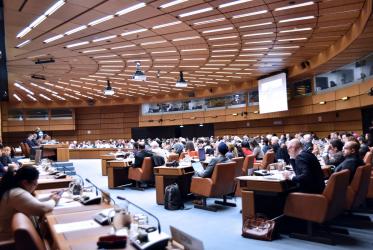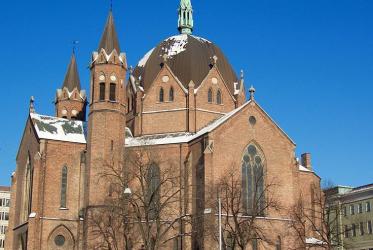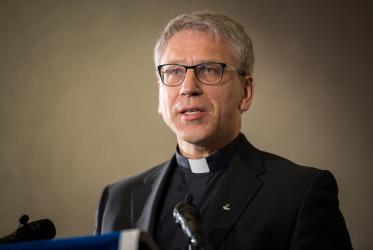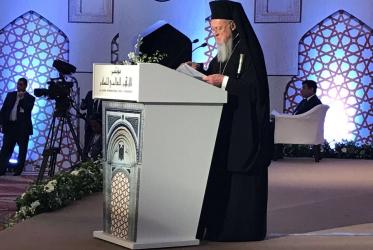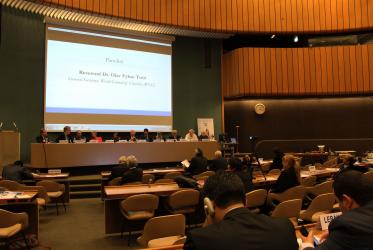Displaying 41 - 60 of 110
Turning plans into action to prevent incitement to violence
14 February 2018
Trying to do good for the world
18 December 2017
Peacemaking “a great and compelling life task”
09 December 2017
Norway to host prayers for peace on Nobel Prize weekend
05 December 2017
Prayers for peace - Ecumenical service at Trinity Church, Oslo, Norway
09 December 2017
Trinity Church, Oslo, Norway
Tveit: “We are called to embrace the gifts of the others”
07 November 2017
WCC students study what makes a peace communicator
18 July 2017
G20 summit: call to pray for peace in Hamburg
07 July 2017
‘Love is stronger than hate’
02 May 2017
Islam and Christianity: finding the common ground
16 March 2017
WCC general secretary speaks on religion and discrimination
14 February 2017
An interview with the Ethiopian Patriarch, Abune Matthias
14 February 2017
Churches in Norway and Pakistan break new ecumenical ground
26 January 2017


